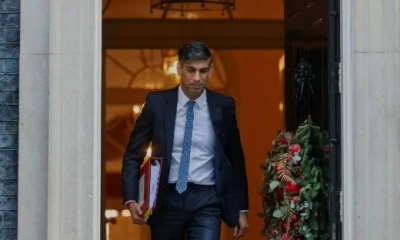The United Kingdom unveiled significant changes to its family visa sponsorship system on Thursday, marking a substantial shift in immigration policy under Prime Minister Rishi Sunak’s administration. Effective immediately, the minimum income threshold required to sponsor a family member’s visa has surged from £18,600 to £29,000, with further increases slated for next year.
“This change reflects the Home Secretary’s commitment to swiftly implement crucial reforms to our immigration system, following a series of measures to tighten various visa routes,” stated the UK government in an official announcement.
As the UK gears up for general elections later this year, immigration has emerged as a pivotal issue, with surveys suggesting that the ruling Conservatives face significant electoral challenges. The revised regulations align with Sunak’s vision to curb what he deems as unsustainable levels of migration, aiming to ensure that newcomers do not strain public resources.
Interior Minister James Cleverly highlighted the necessity of managing the strains posed by mass migration. “We have reached a tipping point with mass migration. There is no simple solution or easy decision which cuts numbers to levels acceptable to the British people,” Cleverly remarked.
The government’s priority lies in safeguarding British workers and wages, while also fostering a system that prevents new arrivals from relying on public funds. The enhanced income requirement seeks to promote self-sufficiency among families seeking reunification in the UK, offering flexibility through various means of meeting the threshold, including savings and employment income.
“We’ve acted swiftly to address unsustainable numbers, protect British workers, and build an immigration system that instils public confidence,” Cleverly affirmed.
In tandem with the income threshold adjustments, the UK government has tightened regulations on student visas and significantly raised the health surcharge for foreign nationals accessing the National Health Service (NHS). These measures are part of a broader strategy aimed at reducing net migration figures from 745,000 to 300,000.

















